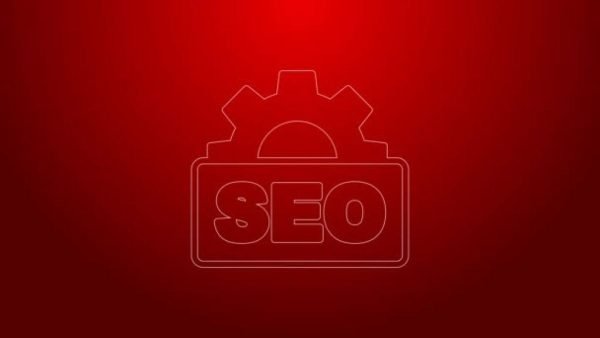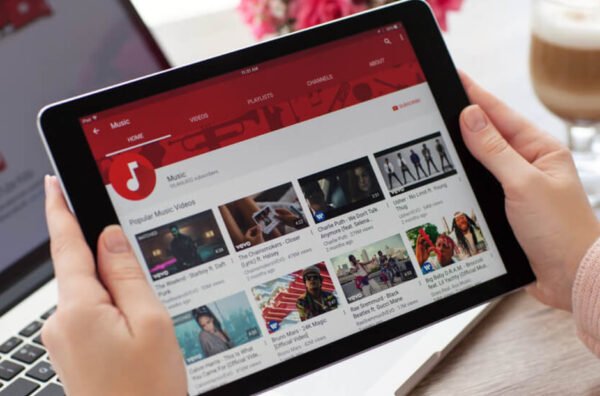Getting a business seen and heard on the congested World Wide Web can feel like shouting into the wind, especially if you’re a small, medium or micro-sized (SMME) business trying to make your mark against established competitors.
An SMME can spend a great deal of time building a website, establishing and growing social media channels, sending out newsletters, special offers and more. But instead of the anticipated volley of interest, you’re met with the distant sound of crickets chirping while waiting for orders or enquiries to come in. It can be a huge blow to any SMME’s morale…and bank balance. So, where are you going wrong?
While online marketing can be complex, the trick is not to get overwhelmed and remember that the same basic rule as brick-’n-mortar businesses apply: you need to be seen by your potential customer and catch their interest in order to get ‘feet through the door’, or, in this case, the right traffic to your website.
Put another way: you can create the most amazing shop front, have the best products and the most amazing deals, but it won’t help if your shop is stuck in a dark alleyway and potential customers don’t know where to find you.
In online marketing, the two most common ways to make sure customers ‘see’ your store front when they’re browsing online are: the fast and furious Pay Per Click advertising (PPC) method; or the slower, more sustainable organic Search Engine Optimization (SEO) route.
For SMMEs with limited budgets trying to figure out how to get ‘feet through the door’, PPC’s quick and fast results are obviously appealing. But is it really the most sustainable strategy, especially if it’s your only strategy?
Table of Contents
The Low-Down on Pay Per Click
PPC advertising via Google AdWords is certainly effective if you want to buy your way onto the top of Google’s Search Engine Results Page (SERP) under the ‘Ad’ results that feature before the organic search results.
The downside? A startling 94% of users ignore the top-of-page ad results and head straight to the organic search results beneath, according to a report by TechJury – a statistic that is backed by a slew of other research.
While organic ranking is always preferable, PPC can – and does – deliver fast, targeted results. If it didn’t, millions of businesses around the world wouldn’t be spending money on Google AdWords.
The questions SMME’s need to ask themselves are: is it affordable, manageable and controllable within your budget; can you compete on a quality basis; and is PPC sustainable as your sole strategy to get top-of-page Google ranking?
The True Cost Of PPC
Let’s start with the cost: on average, a click will cost a small business between USD$1-2. So for a small to medium campaign, an SMME can expect to spend between USD$ 1,500-2,500.
While you can control your maximum expenditure on keyword bids, the cost per click (CPC) on keywords varies wildly per industry. For example, the legal and insurance industries see keywords with the highest CPC, some reaching the $50+ per click rate. Multiply that by 1 000 clicks and things start to get a little wild in the budget department!
You also have zero control over the day-to-day CPC fluctuations. A keyword may cost USD$1 today and, if it gets popular amongst your competitors, it may go up to USD$10 tomorrow.
This is not far-fetched: there is software on the market that allows competitors to see which keywords are working well for you and then effectively ‘hijack’ your keywords for their own competing campaigns, thereby pushing up the cost.
The result is that even if you cap your PPC budget, you could see an entire month’s budget blown over a week, or even one day, if the keywords you’re bidding on suddenly become ‘hot property’.
As MetricsWatch pointed out in a recent study: “PPC advertising is a victim of its own success. It is such a popular marketing method that competition for popular keywords can be fierce.”
Ultimately, with PPC you can control how much you spend, but don’t have total control over the rate of spend.
PPC’s Quality Factor
It’s not only the cost you have to worry about. Without going into the nitty-gritty of a Google Ads PPC campaign, your Google AdWord campaign’s performance is also dependent on its Quality Score, which is determined by:
– Expected click-through rate
– Ad relevance or match (to the searchers’ intent)
– Landing page experience: how relevant and useful the landing page is to the person searching
In other words: if the advert isn’t a good match for people searching and/or the website’s user experience (UX) is poor, competing businesses bidding on the same keywords will get preference on Google’s Search Engine Results Page (SERP).
Is PPC Sustainable?
While you may be able to ride out the wild CPC fluctuations for a few months and may even get a gambling-like thrill from besting your competitors, what happens if you make a wrong bet and blow your monthly budget in one week of PPC gambling?
The answer is brutal: you will lose top-of-page Google Ad ranking almost instantly and all the business that goes with it. And, if you haven’t invested time and/or money into organic SEO ranking, your website isn’t likely to even appear on Page 2 or 3 of Google search.
The fact is that investing solely in PPC is very much like gambling; you can make big wins, but make one wrong gamble and you lose everything. Like any successful gambler, the key is to hedge your bets and ensure that if one bet falls through, you have another solid hand in play.
In SEO terms: if you invest half or more of your digital marketing budget in organic SEO and the balance in PPC, you won’t be in a ‘loser loses all’ situation if you lose a hand at PPC because good SEO delivers sustainable results in the long term.
Solid SEO = Sustainable Organic Traffic
It’s clear that PPC is not a smart stand-alone solution for building your online brand presence in the long run, which brings us to why organic SEO is worth the investment.
Google’s game is to make sure users are getting the best experience possible for their time spent on the Internet, and the stats show that solid SEO is the ultimate winner for long-term, sustainable search results.
Or, as a 2021 WebFx Market Report put it: “When it comes to organic search vs. paid search, return on investment (ROI) is an undeniable point of discussion.”
Organic SEO is not as ‘sexy’ or exciting as gambling on PPC, nor does it give you the overnight highs in traffic that PPC does; it takes time, expertise and effort to deliver results. But, much like the fabled Hare vs. the Tortoise, when it comes to SEO slower and steadier ultimately wins the race.
Weighing Up The Pros and Cons
This is not to say an SMME should not invest in PPC – statistically PPC has a 3.17% click-through rate, which is pretty good. So yes, PPC does work to boost traffic and conversion rates if used as part of a comprehensive digital marketing strategy.
But if you’re an SMME deciding how much of your precious digital marketing budget to allocate, you need to weigh up the pros and cons of PPC versus SEO in relation to your business’ long-term objectives, budget and sustainable goals.
To summarize:
- PPC paid ads appear at the top of the SERP above organic listing; however 94% of users head straight to the organic results and skip search ads.
- PPC has varying costs, which you cannot control; conversely there is no per click cost for organic SEO and you can manage expenditure.
- PPC means competing in bidding wars with competitors for top-performing keywords; whereas AI-driven keyword-based SEO like aiNANSI works 24/7 to optimize your website for the latest and best-performing keywords at a set, low monthly cost.
- PPC can have immediate results but is volatile and unstable; while SEO takes +-3 months to be effective but is sustainable and more stable.
- PPC results will stop as payment stops; whereas SEO results continue indefinitely and can be built upon.
- PPC delivers short-term traffic; however SEO delivers the long-term organic traffic associated with brand credibility and trust.
- PPC cannot deliver sustainable results without SEO; but SEO can deliver sustainable results without PPC.
Ultimately, if you have enough budget the ideal solution is to build a solid organic SEO base and then use this to leverage PPC traffic. But, if you have to make a choice between organic SEO and PPC due to budget constraints, weigh up the pros versus cons and the choice becomes obvious.
Find out more about how aiNANSI’s AI-driven SEO solution can get your website onto Page 1 of Google and keep it there. Book an obligation-free appointment here.





